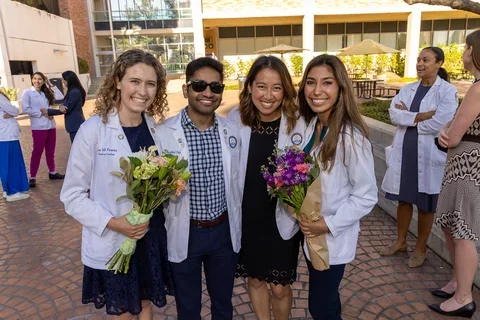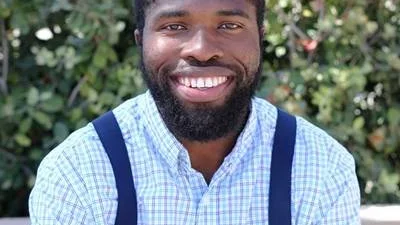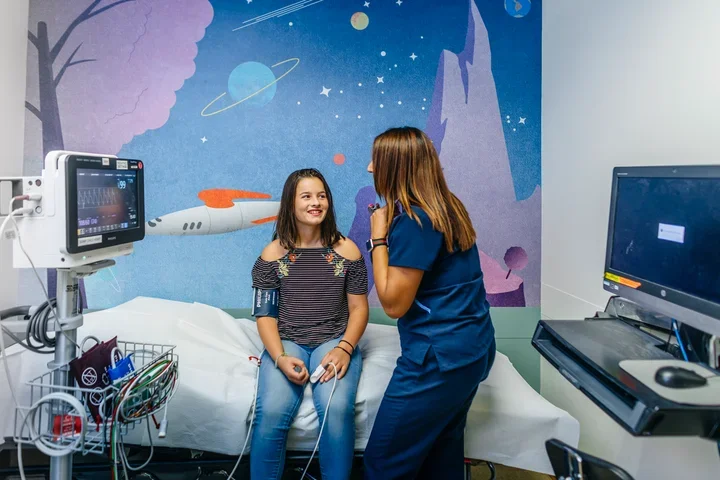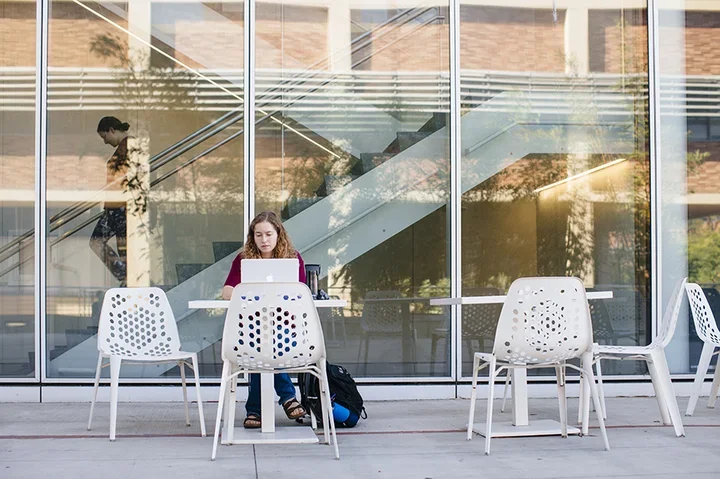What to Expect in the Second Year of Medical School
UCLA Medical School Student Life

Former Med School Student Reflects on Year Two
As medical scientist Fitz Gerald Diala reflects on his second year at the David Geffen School of Medicine at UCLA (DGSOM), he’s filled with gratitude for receiving faculty support as he explored research and clinical interests.
Fitz was happy to share his experiences to help students know what to expect in their own second years of medical school.
You’ll Take Clinically Relevant Courses
Fitz says the second year of medical school is designed to move students closer to their future roles as physicians. Many students, Fitz included, enjoy this year of medical school because the courses integrate basic and clinical sciences. Fitz especially loved learning about all the specific, clinical ways things like smoking, environmental factors, and genetics can affect the human heart.
You’ll Get Clinical Skills, Training, and Exposure

In the second year of medical school, students work in clinics to learn and practice essential physician skills, such as interviewing, examining, and diagnosing.
Fitz recommends volunteering to get clinical practice that’s even more independent than this early clinical work. For example, students can apply to volunteer with the UCLA Mobile Clinic Project, where they’ll help address the complex health needs of the most vulnerable populations in Los Angeles, including the homeless.
Volunteering gives students the opportunity to build hands-on practitioner skills while making a significant difference in the health of individual patients and entire communities.
You’ll Be Able to Explore Different Medical Paths
Fitz chose to participate in the UCLA/Caltech Medical Scientist Training Program (MSTP), a combined MD/PhD degree program. The program gave him the chance to integrate his passion for clinical care with laboratory research, and it offered him in-depth training in a variety of career paths.
"Getting [research training] adds another dimension to the clinical degree," Fitz says.
Participating in the program helped Fitz find the medical focus most appealing to him: Immunity, Microbes, and Molecular Pathogenesis.
Fitz’s Advice: Prioritize
Fitz advises second-year medical students to prioritize time with their career and personal goals in mind.
"My philosophy is doing [work] that prepares me for what lies ahead," Fitz says.
Fitz thinks it’s fine to prioritize medical school, but he urges students to make time for other activities. He recommends taking advantage of the gym facilities, sports, and activities offered through the UCLA recreation program. Fitz especially loves UCLA’s annual “Grad Games,” which bring together graduate students across UCLA for a weekend of games and healthy competition.



